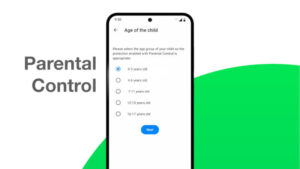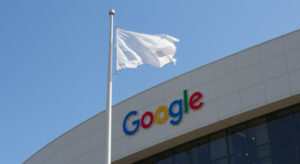Welcome to MicroApple.
It’s beginning to look as if Microsoft intends to get traction for Surface and other tablets running Windows by building a walled garden, creating more of the vendor lock-in that’s made Redmond famous. In other words, don’t expect to see any Microsoft programs ported to Android or iOS any time soon. Although this exclusivity has worked to keep the company’s monopoly intact in the past, this time it’s headed for failure. Windows has finally run out of steam.
I’m talking about Microsoft’s revelation last week that it has no immediate plans to make the tablet version of MS Office available on any platform but Windows. According to CNET, Redmond’s spin is that this is being done with only the user in mind:
“In an interview with CNET, Office division President Kurt DelBene said Microsoft’s own Windows is the priority for the newest version of Office. The new touch-friendly productivity suite will debut on Windows 8, which launches in October, in large part because the operating system is the best showcase for Microsoft’s application suite.”
DelBene’s got it backwards, of course, as the purpose here is really for Office to showcase Windows–which is getting long in the tooth on the desktop and going nowhere on mobile.
Even the word “showcase” might be misleading. The truth is, Microsoft thinks that business is still tightly locked into the proprietary Office formats, so it’s trying to get a message to the enterprise that “bring you own device” should refer only to Microsoft devices that will integrate with their existing IT infrastructures.
Unfortunately, Microsoft has pulled this rabbit out of the hat so many times that the trick has become a tired cliche. Although Office remains firmly entrenched in the enterprise, it’s lost much of the firm grip it once held. Unless it’s a highly formatted spreadsheet, opening an Office document in LibreOffice or Google Docs works fine. I’m just guessing here, but it’s my bet that most workers aren’t going to do a lot of work on highly formatted spreadsheets on their smartphones or tablets. Even if they do, there are workarounds.
The other problem for Microsoft is there doesn’t seem to be a demand for phones or tablets running the Windows brand. Nokia’s initial foray into the mobile Windows market with the Lumia 900 turned out to be DOA, with the Finnish company last week announcing it was cutting the price of the phone by half after just three months on the market. This was a major concession, although the company attempted to put a business-as-usual spin on the move:
“‘This move is a normal strategy that is put in place during the life cycle of most phones,’ Nokia spokesman Doug Dawson said in an email. It ‘allows a broader consumer base to buy this flagship device at a more accessible price.'”
But that was last week. Today, we learn from Examiner.com that the phone which was selling for $99 two weeks ago and $49.99 just last week, can now be purchased through Amazon or AT&T for a mere $19.99:
“The $19.99 sale price for Nokia’s Lumia 900 Windows phone caught some industry watchers by surprise; they knew things weren’t going well for the model but no one expected another heavy discount so soon.
“The rapid decline of the price of the Lumia 900 could be seen as a further attempt by Nokia outlets such as AT&T and Amazon to boost sales and clear old stock. But others speculate that it is the precursor to the end of the Lumia 900.”
This doesn’t bode well for Nokia, which has gambled it’s future on Windows, or Microsoft. Both companies would like us to believe the move was brought about by Redmond’s recent announcement there will be no upgrade path from Windows Phone 7 to Windows Phone 8 when it’s released in a few months time. The truth seems to be that consumers simply aren’t interested in portable Windows devices, despite the gee-whiz advertising that’s been showing up on network TV recently.
With the exception of the Xbox, the luster seems to have worn off all Microsoft’s consumer products, including its flagship operating system. Here at FOSS Force, only 35% of our visitors are running Windows, which isn’t necessarily surprising as we’re an open source site. However, on another site we publish that doesn’t attract tech savvy visitors, Windows only accounts for 62% of our visitors, down from 91% only three years ago.
Until recently, OEMs pretty much refused to get serious about introducing computers running anything other than Windows, and for good reason. On computers, consumers use what they know, and they knew Windows. That’s all changed. Not only have consumers come to like their experiences with Android on handsets, they’re coming to have the same affection for Android on tablets as well. Just weeks after release, Google has already sold out of the 16GB version of the Nexus 7.
It might be time for Google to release a version of Android optimized for desktops and laptops. If it did, that might reduce Windows to being just another option, even on the desktop. The walled garden approach isn’t going to work for Redmond like it does for Cupertino. That approach requires a superior product and neither Windows nor Office falls into that category.
Christine Hall has been a journalist since 1971. In 2001, she began writing a weekly consumer computer column and started covering Linux and FOSS in 2002 after making the switch to GNU/Linux. Follow her on Twitter: @BrideOfLinux







Where’s Loverock Davidson when you need him? This Hall guy is using rational arguments and backing them up with real information. That won’t do! Better get some fruit fanbois in on this, too!
@Chris Hall,
i could not agree more with this article. Personally i am just getting comfortable with using Linux, particularly linux mint. Even though i dual boot with windows i could say good bye to windows in the near future if they continue to implement stupid ways to keep their software locked and incompatible with other OSes.
Also, regarding windows 8 which will change the appearance of traditional MS windows with metro UI etc. as you quoted: “consumers use what they know, and they knew Windows. That’s all changed.” that was my mentality all along that Microsoft will have shot themselves in the foot by reinventing the OS and with locked down issues that will put off consumers from using windows.
Personally, I dont hate windows nor do I favour linux, but i am understanding the freedom to choose what works best for my computing needs which is why I dual boot. but i wonder do Microsoft implement this “walled garden” approach to lose consumers and money?? because they are not doing themselves any favours.
Hiring Mr Elop as CEO has been devastating for Nokia specially after he caused the Elop-effect, Nokia sales has declined both smart phones and dumbphones, and according to Tomi Ahonen, Nokia sells even less units in US than they did 18 months ago and one of the reasons must be the poor hardware quality on the Lumia 600-800 (should be noted that those ain’t build by Nokia) and for Microsoft this whole story has just made them to increase their market share with 0.2 units from 2.2% pre Nokia deal to 2.4% earlier this year. Don’t forget that Nokia N9 outsold all Lumia models 3-1 during 2011Q4 – 2012Q1 and N9 was only sold in small markets. It’s quite devastating to see that they now have to sell the Lumia units as low as US$19:90 as they pay US$20 for each unit to Microsoft in license fees.
Lumia was so successful that Nokia had to make the 801T to be able to get any devices sold in China, but then it don’t run WP but the more superior Symbian.
The truth is that MBAs can’t run businesses. When Bill (an entrepreneur) ran Microsoft, it made money. When Steve (a MBA) runs it, it fails. Entrepreneurs worry about solving their customers’ problems. MBAs worry about finances. Solving customers’ problems builds businesses. Cutting costs cripples them. Don’t put a MBA in charge if you want your business to succeed.
It was once said, “Lead with benefits. Follow with features.” What is the benefit to customers of Windows™ anything? A well known and understood end-user environment used to be a benefit. Windows-8™ tosses that out. Any small screen deployment makes changes that are damaging to both “well known” and “understood.” It appears that Android®, iPhone® and iPad® have established a new norm in end-user interactions. While it has yet to make it onto the desktop, blink and it will be there.
Well…its finally happened the 800lb. gorilla known as “Microsoft” has FINALLY fallen! And they met their demise at the hands of the open source community! (And don’t be fooled! Android started out “open”!) But its sad to see that a company that LITERALLY held the world ranson with it’s office products, desktop systems, and server software, has now been relegate to trying to “catch up” to the others. I have used Windows and MS products since Windows 95, and I only recently stopped all usage, cold-turkey, when I had just had enough of the fees involved with upgrading to the next version. As of this writing I have been a Fedora/Ubuntu/LinuxMint user and have never looked back. From LibreOffice to the millions of apps that I can install and use for free, there’s no real reason to use MS anymore, and its sad because its not just a few people, but a LOT of peopel are abandoning ship when it comes to MS. SO Adios, “Redmond” and say hello to the new “Kings” of Computers…from Andriod and Linux to everything OTHER than MS!